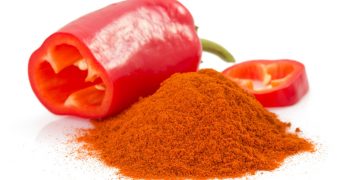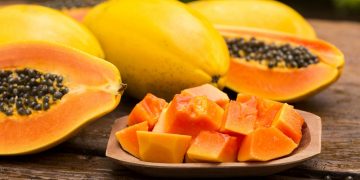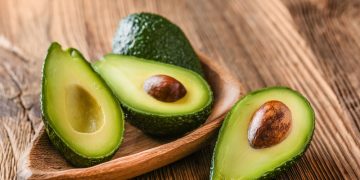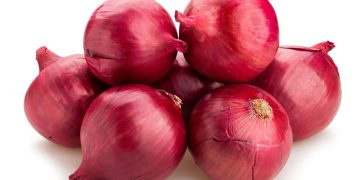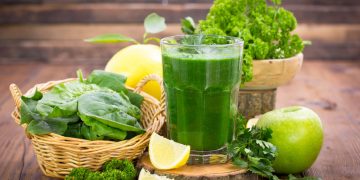Kale is one of the most popular cruciferous vegetables and belongs to the cabbage family. There are many types to kale differing in the color and shape of the leaves.
It is considered as a superfood because it is packed with nutrients, minerals, antioxidants, and fibers that enhance your digestion, cardiovascular health, supports for healthy hair, bones, and skin.
If you haven’t tried eating kale yet, then here are some interesting reasons and benefits you must start consuming it.
Reduces Oxidative Damage
Your body undergoes oxidative damage every day due to radiations, sunlight, bad food habits, and many other factors.
To nullify the oxidative damage caused by free radicals, your body needs antioxidants. Kale being a rich source of antioxidants like vitamin-C, polyphenols, and flavonoids it is one of the best foods you can consume regularly to counter oxidation.
Studies have shown that cooking kale in high flame reduces the levels of Vitamin-C and polyphenols. This means it is better to consume kale in raw form or in the half-cooked state.
Helps with Diabetes
The high fiber content in kale is believed to be helpful in regulating blood sugar levels in both type-1 and type-2 diabetics.
Apart from being rich in fiber content, it also rich in a chemical compound called alpha-lipoic acid, which is an antioxidant.
Some scientific studies have shown that alpha-lipoic acid helps to lower blood glucose levels by increasing insulin sensitivity in patients suffering from diabetes.
While your body is capable of producing alpha-lipoic acid on its own, kale is a healthy source of the same to ensure you have enough in your body to counteract any sudden spike in blood glucose levels.
Protects your heart
Kale is rich in four compounds that help to protect your heart and improve its functioning. Those are fiber, potassium, vitamin C, and Vitamin-B6.
Potassium helps to regulate the levels of sodium and helps to reduce blood pressure. Studies have shown the link between higher intake of sodium with reduced risk of stroke.
Studies have shown that vitamin-C supplements are very effective in adults with existing high blood pressure. It was successful in reducing both systolic and diastolic blood pressure.
Fiber helps to get rid of excessive and bad cholesterol and fat in your foods and it also improves your gut health and enhances its ability to absorb nutrients that are vital to your heart’s health.
Studies have found a link between B6 deficiency and increased instances of cardiovascular diseases. While not many vegetables and fruits in our daily diet are rich in this vital nutrient, kale is, however, a really good source of it.
Effectively reduces cholesterol levels
Unlike popular belief, your body needs cholesterol to perform various functions.
For example, cholesterol is needed by your liver to make bile acids, which are essential for your body to digest fat and absorb fat-soluble vitamins.
Problem with cholesterol starts when your arteries experience oxidative damages due to free radicals. Cholesterols actually come to the rescue to repair these damaged sites in the arteries, however, this mechanism has a negative impact sometimes, leading to a heart attack.
Coming back to bile acids, once it had successfully performed the task of digesting and absorbing fat, the excessive bile acids get absorbed back into the bloodstream and used for future needs.
Substances called bile acid sequestrants will bind itself to these excessive bile acids and prevent it from being reabsorbed into the bloodstream, thus reducing the total amount of cholesterol in the body.
Kale is a good source of bile acid sequestrants, which means it effectively moderates the amount of cholesterol in your body, and reduces the risk of cardiovascular diseases.
Prevents blood loss
Kale is a very good source of Vitamin-K, which is a very vital nutrient for blood clotting.
Clotting of your blood is very critical when you go through injuries and internal bleeding. It is a lifesaver for pregnant women.
A single cup of raw kale contains about seven times the daily recommended dose of Vitamin-K.
Fights cancer
Cancer is a terrible disease that is responsible for the deaths of around 1600 people every day in the United States alone.
Cancer is caused due to uncontrolled growth and mutation of your own body cells.
Kale contains certain compounds that have shown a protective effect against certain types of cancer.
Sulforaphane, which is present in kale has shown to inhibit the formation of cancer cells at a molecular level.
Many studies have shown the link between cruciferous vegetables and reduced risk of cancers. Kale being one of it, plays a significant role in reducing the risk of several types of cancers.
Improves and protects your vision
It is a well-known fact that your body needs vitamin-A for the proper functioning of your eyes.
Kale is a rich source of an antioxidant called beta-carotene, which gets readily converted into vitamin-A by your body.
Additionally, one of the most common problems with aging is eyesight. Studies have shown that age-old people who have blurred vision or problems with eyesight have two nutrient deficiency, and those are lutein and zeaxanthin. Both of these nutrients are found in abundance in kale.
May help you lose weight
Although there are no direct pieces of evidence or studies to support that kale helps with weight loss. It is a common sense that it might be based on its nutrient contents.
Kale is very low in calories, has high fiber content, high water content, and a little bit of protein. All of these makes up for a perfect ingredient in your regular meal that should aid your weight loss goals.
The high fiber and water content in kale will help you to feel full faster and reduce your craving, making you eat less.
Additionally, its low-calorie content will force your body to make use of the reserve fat.



